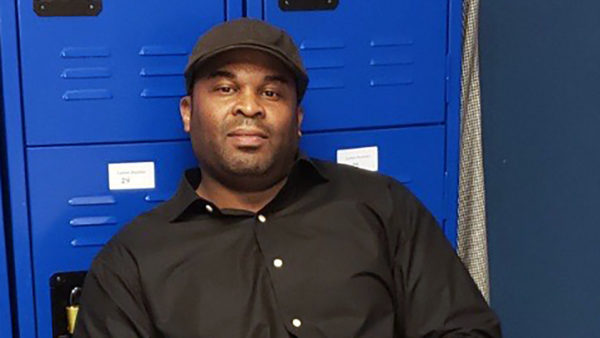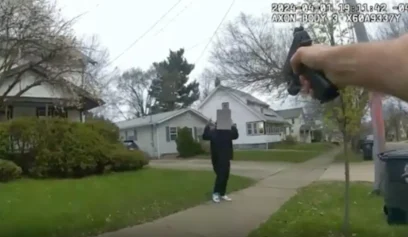A Maryland man was exonerated more than a year after he was released from prison after serving 25 years for a crime he did not commit.
Samuel Brownridge was only 18 years old when he was convicted in the execution-style killing of Darryle Adams, reported The New York Times. Adams died on March 7, 1994, in Queens, New York, after he was mugged by four men, including one in a wheelchair who struck him in the head with a bottle. A gunman then fired a shot into the back of Adams’ head while he was on his knees.

Four days later, Brownridge was taken into custody at his home. He was eventually convicted of murder and sentenced to 25 years to life in prison. He was released on lifetime parole in March 2019. On Tuesday, a judge vacated his sentence after Queens District Attorney Melinda Katz and Brownridge’s legal team filed a motion because a key witness recanted his statement and several others named another man as the killer. The exoneration effort was spearheaded by the Queens County District Attorney Office’s Conviction Integrity Unit.
“Everyone in the criminal justice system failed you in some way or another,” Justice Joseph Zayas told Brownridge, who is now 45, during a virtual court hearing. “The miscarriage of justice in your case is monumental. It is therefore no surprise that large segments of our city and our country have grave doubts about the criminal justice system and its ability to deliver equal and fair justice to all.”
The case against the Brownridge was problematic from the beginning, according to court documents.
His fate hinged on the inconsistent testimony of two other men, Kevin Boatwright and Quintin Hagood. Boatwright was approached by the four muggers before Adams died. However, when Boatwright was shown a police lineup, he initially picked two other innocent men as the shooter and the man in the wheelchair. The mistakes were not included in police reports and the only record of it was a note written by an assistant district attorney. Boatwright’s description of the suspect, a 20-something with a fade haircut, did not match 18-year-old Brownridge, who sported a medium Afro at the time.
The murder weapon was never recovered and no forensic evidence placed Brownridge at the scene. Prosecutors say Brownridge “consistently asserted his innocence of the murder and has claimed that he was at home with his girlfriend and child at the time of the shooting.” Brownridge’s mother, girlfriend and the girlfriend’s mother were prepared to testify to corroborate his story but they were unable to do so because his lawyer at the time did not inform the court of his intent to use them as witnesses.
The other witness, Hagood, changed his story multiple times before he eventually recanted his testimony. Additionally, crime scene photos show he couldn’t have seen the shooting from where he was standing. Hagood later claimed he was pressured by police and Boatwright to identify Brownridge. Court documents also noted he was schizophrenic and his mental state was “impaired” during the trial.
“Eyewitness misidentification is a leading cause of wrongful conviction, and the prior misidentification of two men in photo arrays certainly raises questions as to the reliability of the identification procedures used in this case,” Bryce Benjet, director of the Katz’ Conviction Integrity Unit, told ABC News.
Brownridge began appealing his sentence in 1999 and was finally granted a hearing in 2003 after Mark Taylor, an eyewitness, implicated a dead man named Garfield Brown — who had died in a police shootout the previous year — after Taylor was arrested for an unrelated offense. Nothing came of it because Taylor recanted his statement after receiving threats and being labeled a snitch.
The series of events cost Brownridge 25 years of his life.
“I sit down sometimes and say to myself, why me? My 20s, 30s, and half of my 40s are gone,” Brownridge, who is now living in Maryland, admitted to ABC News. “I sat in a jail cell every night waiting for this day, while others went home to their families, knowing that the system failed and law enforcement did not do what they could to free an innocent man.”


